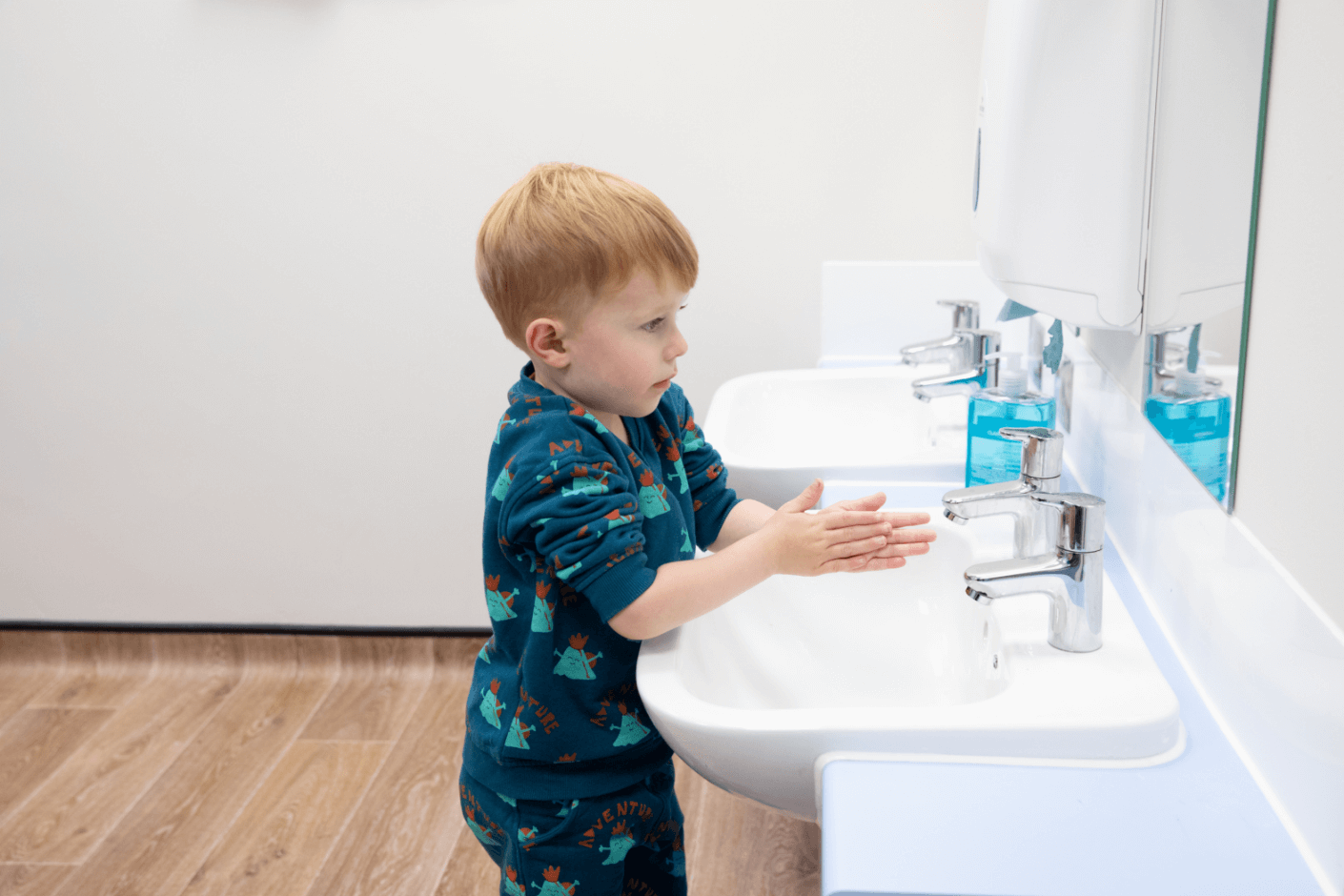Children are naturally curious and constantly exploring their surroundings, which can often bring them into contact with dirt and germs.
Establishing healthy habits and good personal hygiene early on can be invaluable for a child’s long-term health and well-being. These habits not only protect them from harmful germs, infections and illnesses as they grow and explore, but also set the stage for a lifetime of self-care and maintaining a healthy environment for everyone around them.
Estimates suggest that round 12% of children in England may have decay in their teeth by as early as three-years-old. A child in England has a rotten tooth removed every 10 minutes.
In this blog, we explain the importance of an effective and enjoyable hygiene routine for your child and share a simple routine you can implement at home.
1. Establishing good oral hygiene for children
Tooth decay can be a big problem among young children, affecting almost a quarter of youngsters. The good news is that it is largely preventable.
If you teach your child habits such as brushing their teeth twice a day (once just before bedtime and once in the morning) and flossing from a young age, it sets them up for a lifetime of strong, healthy teeth and gums.
Healthy teeth support speech development and chewing. Baby teeth also act as placeholders for adult teeth, so maintaining their health is crucial for correct alignment and future oral health.
To make routines easier, you can even introduce fun activities like allowing your child to choose their own toothbrush or incorporating a brushing timer to help these habits become second nature.
2. Don’t forget sleep hygiene for children
Good personal hygiene for children doesn’t stop with physical cleanliness; it extends to promoting healthy sleep habits.
Sleep hygiene is about creating an environment and routine that supports restful sleep.
We recommend making sure your child’s sleep space is clean and comfortable, and you should establish a consistent bedtime routine where possible to help get prepared to fall asleep.
Limiting screen time before bed, incorporating a calming activity like reading, and keeping the room dark and temperature comfortable will help your child get the rest they need to maintain their physical, mental and emotional wellbeing.
If you’re looking for more stress free bedtime tips, we’ve got you covered in our recent blog.
3. Creating a daily hygiene routine for children
Here’s a simple plan for promoting good hygiene for children 5 years and under:
Hand washing
Teach children to wash their hands before meals, after playing outside, and after using the toilet. Show them the correct way to wash their hands: with soap and water for at least 20 seconds.
Brushing teeth
Ensure your child brushes their teeth for two minutes, twice a day, once in the morning and again before bed. Parents can help younger children with brushing until they develop the motor skills to do it effectively on their own.
Bathing
Regular baths or showers help maintain clean skin, remove sweat, dirt, and bacteria, and promote overall freshness. Encourage your child to bathe or shower daily, especially after active play or outdoor activities. Rember that young children should never be left to bathe unattended.
Nail care
Keeping nails trimmed prevents the build-up of dirt and bacteria that could lead to infections. Make nail trimming a regular part of your child’s routine and teach them to gently clean beneath their nails to ensure proper hygiene.
Hair care
Brushing hair daily helps to distribute natural oils from the scalp, keeping hair healthy and shiny while preventing tangles and knots. Depending on your child’s hair type, regular washing with a gentle shampoo is also important to remove dirt and excess oils.
4. Get in touch for more information
As a leading nursery chain operating in the Southwest of England and South of Wales, helping young children prepare for school with purpose-built facilities and a specialist curriculum of learning, we’re no strangers to expert child care.
We’re passionate about supporting the development of the children in our care both when they’re at nursery, and when they’re at home, sharing effective tips and guidance for parents.
Get in touch if you have any questions by calling 0800 783 3431 or emailing enquiries@happydaysnurseries.com, or use our Find a Nursery tool to see which of our nurseries or preschools is closest to you!
